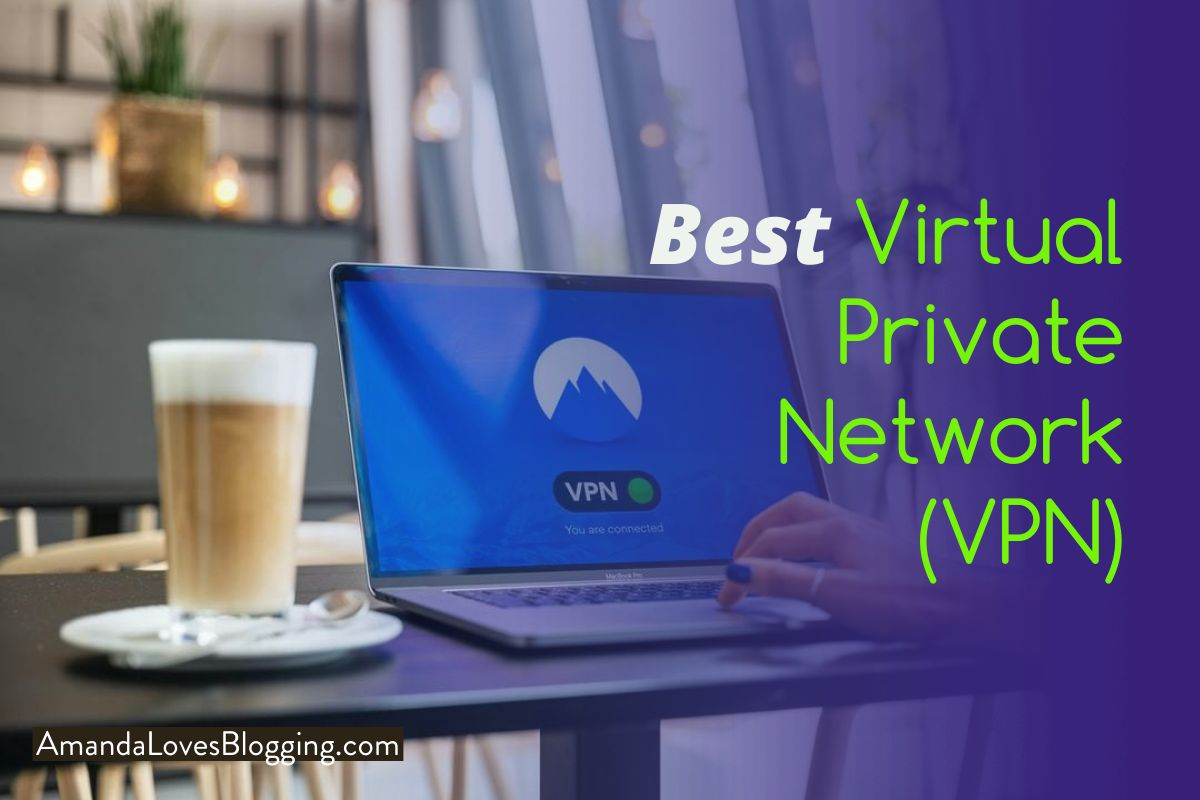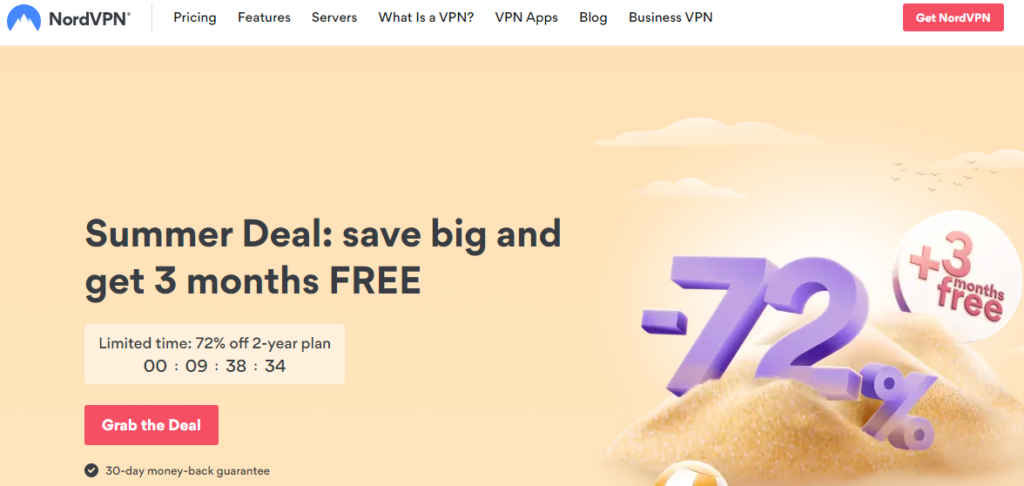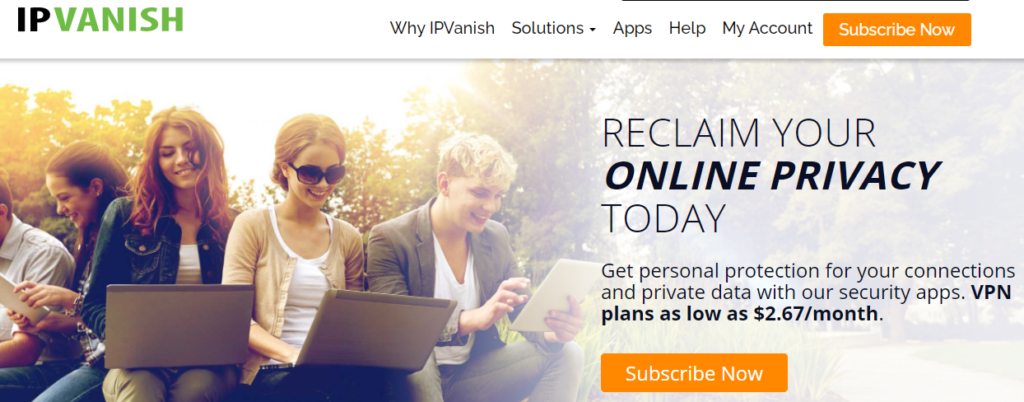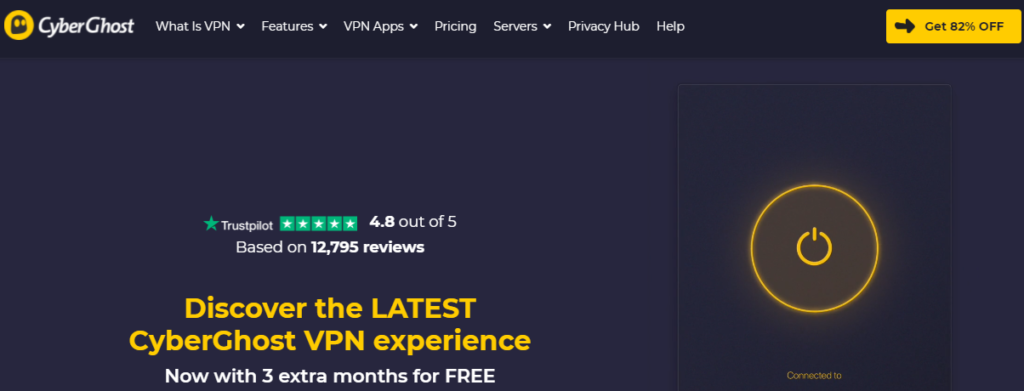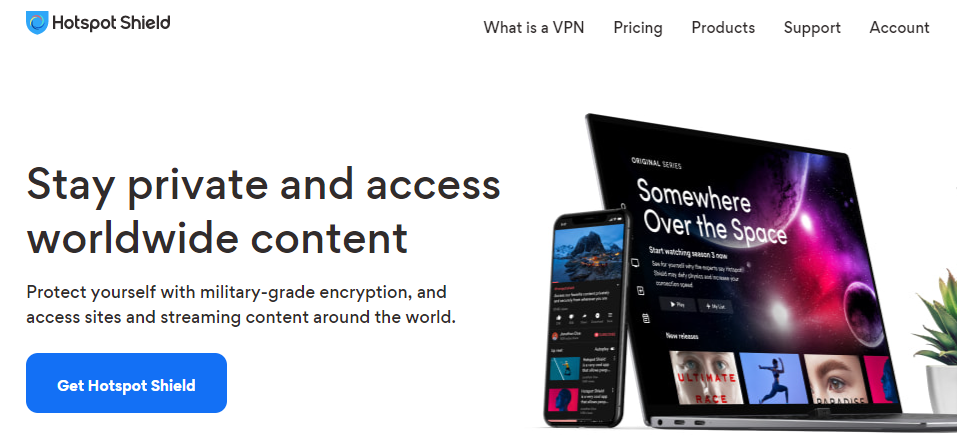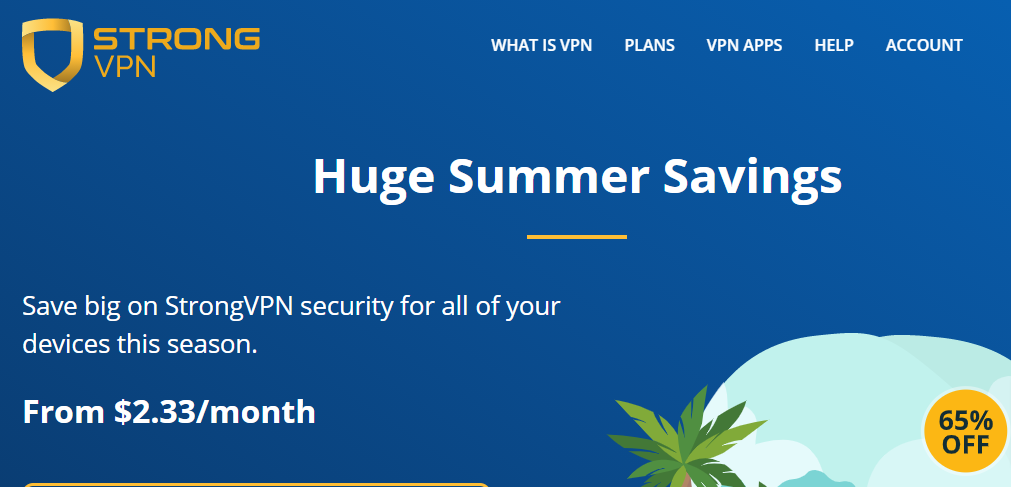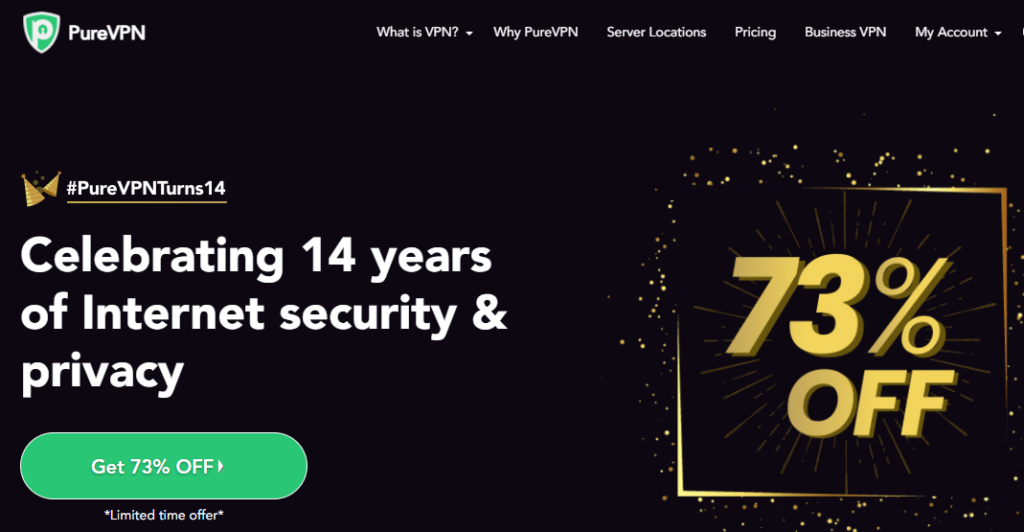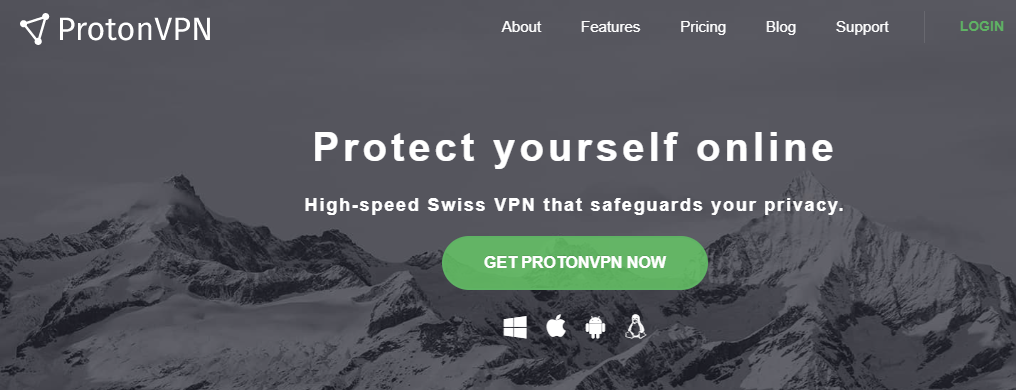VPN is a relatively new technology that creates a safe and encrypted connection over the internet. The user does not need to install any software on their PC or mobile device because the VPN provider sets up the encryption method. Connecting to a VPN service will give you some measure of privacy, security, and anonymity when surfing the web. A trusted VPN provider will allow you to bypass location-based restrictions on content like sports broadcasts; in addition, it provides an added layer of protection by encrypting your traffic so that eavesdroppers can’t read it.
But is a VPN private? To find out, let’s examine the top 10 VPNs available in the market. They are based on unique features, price plans, and security measures to assure your privacy and anonymity.
Today, users have more privacy concerns than ever before. Every day, it seems, there is a new scandal dominating the media headlines. Unfortunately, revelations in the news aren’t uncommon. Just this week, it was revealed that security firms are keeping logs of all user browsing habits to find out more about their online activity.
There are a lot of paid VPN services out there and we have reviewed many of them but we also make sure that we add some best free VPNs as well that can be useful to you. Below you can see our top picks for the best free VPN server lists:
Contents
- 1 Top 10 VPN Services
- 2 Things You Ask Before You Buy a VPN service
- 3 Frequently Asked Question
- 3.1 What is a VPN?
- 3.2 Most popular uses for VPNs
- 3.3 Can I Use a VPN on Any Device?
- 3.4 Can you be tracked if you use a VPN?
- 3.5 How much does a VPN service cost?
- 3.6 How many different VPN services are there?
- 3.7 Can your Internet provider see your history with a VPN?
- 3.8 Can a VPN be hacked?
- 3.9 How to setup a VPN?
- 3.10 Does a VPN Slow Down Your Internet Connection?
- 3.11 Is a VPN safe?
- 3.12 Is Using a VPN Legal?
- 3.13 Which Different VPN Protocols Are There?
- 3.14 Should I Use a Free VPN Service or Buy One?
- 3.15 What limitations do VPNs have?
- 3.16 Should VPN be always on?
Top 10 VPN Services
- ExpressVPN
- NordVPN
- IPVanish
- Cyberghost
- VyprVPN
- Private Internet Access
- Hotspot Shield
- StrongVPN
- PureVPN
- ProtonVPN
ExpressVPN:
ExpressVPN is the fastest and most reliable VPN service. Named by Mashable as the “most secure VPN”, it is highly popular in China as a favorite VPN for securing both mobile and desktop internet activities. It has an extremely user-friendly interface and offers 24/7 customer support. It also provides a 30 day money back guarantee if you are not satisfied with the service provided by ExpressVPN, so what have you got to lose?
ExpressVPN offers unlimited bandwidth, high-speed connection speed, high encryption strength and supports all OS including Android/iOS/Windows/Mac. It is easy to install on any device, routers or platform with its simple installation wizard. With over 2,000 servers worldwide, ExpressVPN has the ability to unblock all the geo-restricted sites as well.
ExpressVPN Pros and Cons:
ExpressVPN Pros:
- Fast and reliable servers with 99% uptime.
- 24/7 customer service via live chat support.
- ExpressVPN is a highly secure VPN service offering OpenVPN protocol, Cisco IPsec, L2TP/IPsec, MS-SSTP and PPTP protocols.
- Unlimited bandwidth and speed for P2P filesharing (Torrenting).
- 30-day money back guarantee for risk free try of the service!
- Connect 6 devices at the same time with one single VPN account! ExpressVPN
ExpressVPN Cons:
- Free trial period is 1-3 days
- No free plan available
ExpressVPN Plans and Pricing:
- 1 Month: $12.95
- 6 Months: $8.32/Month
- 12 Months: $6.55/Month
- 2 Years: $2.99/Month
- 3 Years: $2.76/Month
NordVPN:
NordVPN is another popular VPN among users because of its sleek and user-friendly interface. It has over 2,800 servers in 59 countries which can be accessed through a wide range of devices including Windows, MacOS, Linux iOS and Android. NordVPN hosts its own DNS servers so your connection will not leak even when you use Wi-Fi or Ethernet. It offers 6 simultaneous connections and also allows P2P traffic on some servers.
The NordVPN is the best VPN service for streaming and bypassing geo-restrictions on streaming websites and content such as Netflix, Hulu, BBC iPlayer, YouTube, etc to connect to them with a smart DNS proxy service that unblocks Netflix, Hulu or other streaming services in high quality and without any buffering delays! It also protects your privacy and identity online by giving you an encrypted tunnel to prevent third parties from snooping on your internet activities.
It is not easy to find a VPN provider that offers its members such a high level of security. NordVPN is an extreme security expert that is known for their great speeds and support for all platforms. NordVPN allows P2P (which also means torrents) and offers special servers to help make P2P connections more secure and anonymous if they are not already secured using other tools. It also uses double encryption of your data which makes it even more safe than other VPN providers.
NordVPN Pros and Cons:
NordVPN Pros:
- NordVPN has fast and secure servers in more than 60 countries.
- The servers do not keep any logs of user data, or connection data. They will use the IP address instead, which is very much easier to maintain security than keeping logs on a server.
- Choose a dedicated IP when using P2P so your identity won’t be snooped on by hackers!
- NordVPN offers 6 simultaneous connections along with all the other speed options such as, 1Mbps for $79 per year and higher speeds and data caps according to your needs.
- NordVPN is a zero-logs VPN and has the fastest servers so your internet connection will not be slowed down while you are online.
NordVPN Cons:
- This VPN service is a little bit more expensive than the other ones in this list.
- You need to manually install its client software on your device, unlike others that have an automatic installation process. That may be annoying for some users who want an easy solution. However, you can always add it manually by downloading the latest version from their website after creating a new account if you want to try it yourself first.
- It is only available for Windows, MacOS, iOS and Android.
NordVPN Plans and Pricing:
NordVPN has a free plan which grants you a single device on up to 3 devices. They also have a 2-year plan starting at $2.99 per month and is available for 6 devices. NordVPN offers 1 month, 3 months, 6 months and 12 months subscription plans as well as the option of paying in full or buying one time payments.
- 1 Month: $11.95 – Save 49%
- 3 Months: $6.99/Month – Save 46%
- 6 Months: $5.99/Month – Save 45%
- 12 Months: $4.75/Month – Save 42%
- 2 Years: $3.
IPVanish:
IPVanish is the latest VPN to be added to the list of best VPN services. The company is based in the US but has servers in over 60 countries which makes it quite popular among VPN users all over the world. With its user-friendly software and server network that’s faster than what most other providers can offer you, it has become a favorite among many users. Although still being under development by some experts, IPVanish has already proved itself to be quite reliable and secure.
Got about 1,000 servers in over 60 countries. So you can unblock any geo-restricted or blocked website using IPVanish. It offers unlimited bandwidth and speed, high-security levels, and strong encryption which will keep you safe online.
IPVanish is also a good choice when it comes to P2P activities (torrenting) and offers fast speeds for downloading torrents anonymously. You can also use their IPVanish app to protect your mobile devices as well while enjoying all the benefits mentioned above.
IPVanish Pros and Cons:
IPVanish Pros:
- IPVanish works on 5 devices simultaneously with one single account.
- IPVanish has a 7-day money-back policy.
- It has servers in over 60 countries and is providing fast speeds which allows you to stream videos online without any lags.
- IPVanish offers unlimited bandwidth and speed so you can use the internet without any restrictions or download caps! It also encrypts your online activities to keep them secure from 3rd parties who may be snooping on you or trying to hack into your accounts, bank accounts or credit card details while using public Wi-Fi networks.
IPVanish Cons:
- IPVanish does not have a free trial.
- They do not have live chat support but they do offer email and ticket support to all its users. That’s why, every time you experience any issues, you can always find the solution to your problems online or in advance by checking their FAQ.
IPVanish plans and pricing:
IPVanish has 2 plans for its users – Monthly plan and yearly plan. The monthly plan costs just $6.49 per month while the yearly plan is actually cheaper at $5.99 per month because it would be paying for 11 months instead of paying just once for 12 months!
- Monthly Plan: $6.49/Month
- Yearly Plan: $5.99/Month – Save 16%
- 2 Years: $3.99/Month – Save 64%
IPVanish Compatibility: Works with Windows, MacOS, Android and iOS devices. Also supports Linux (command-line) for OpenVPN connections.
IPVanish Free Trial: 7-day Money-Back Guarantee
IPVanish Payment Methods: Bitcoin, Credit Card, PayPal and Payza.
IPVanish VPN Server locations: Over 60 countries such as the US, Canada, UK, France and Australia.
Cyberghost:
Cyberghost is among the very popular VPN service providers in the market today. It is based in Romania and although it is one of the newer VPNs, it has already managed to remain one of the most secure and reliable ones.
Cyberghost works differently from other major VPNs by offering a free proxy service first before you get to test its military-grade encryption. This way, you can be sure that your connection will be 100% safe since all your data will end up being encrypted before even reaching its destination. Also, you are able to choose between 3 levels of encryption – pre-shared keys, and 128 bit and 256 bit.
Cyberghost has servers in over 30 countries so that you can unblock any website or app of your choice.
Cyberghost Pros and Cons:
Cyberghost Pros:
- CyberGhost works on up to 10 devices with just one account!
- CyberGhost offers a 7-day money back guarantee along with a 1-month trial period so you can test its military grade encryption which will guarantee your security online without any worries!
- It has servers in over 30 countries which makes it one of the most popular VPNs available today.
Cyberghost Cons:
- There is no free trial and you need to pay a one-time payment of $39.97 for its 3-year plan ($2.29/month). That’s actually lower than other paid services since there are other services that offer 3 years plans at a much higher fee (like $4/month)!
- It does not have live support but it does offer email and ticket support in case you run into any technical issues while connecting to its servers.
Cyberghost plans and pricing:
Cyberghost offers a 3-year plan which costs $39.99 which is actually cheaper than the other paid VPNs.
- 3 Years: $2.29/Month – Save 62%
- 1 Year: $2.00/Month – Save 50%
- 1 Month: $6.99/Month – Save 46%
- 12 Months: $1.49/Month – Save 52%
Cyberghost Compatibility: Works on Windows, MacOS, iOS and Android. It also supports Linux for OpenVPN connections.
Cyberghost VPN Free Trial: 7 days Money-Back Guarantee
Cyberghost Payment Methods: Paypal, Credit Card, Bitcoin and Ukash.
CyberGhost VPN Server Locations: Over 30 countries including South Africa, Italy, Singapore and France.
VyprVPN:
VyprVPN is among the most popular VPN services in the market today.It is based in Switzerland although it has servers in over 70 countries which make it available to users all over the world. VyprVPN supports PPTP, L2TP/IPSec and OpenVPN protocols and offers a variety of encryption settings so you can customize your security online. VyprVPN also gives you the option of securing your connection on public Wi-Fi networks using its Chameleon protocol for Windows and OpenVPN for Android.
VyprVPN is owned by the internet conglomerate Golden Frog and has servers that are specially optimized to provide users with fast speeds when connecting to their servers from overseas. This way, you can enjoy watching videos online or using P2P services without any buffering or slow connections.
VyprVPN Pros and Cons:
VyprVPN Pros:
- VyprVPN works on up to 5 devices with just one account!
- It is good for P2P activities (torrenting) because of its fast speeds for downloading torrents anonymously.
- VyprVPN has a 3-day free trial and a 30-day money back guarantee (although it does not work with Netflix) so if you are not satisfied, you can always ask for money back.
- VyprVPN has servers in over 70 countries around the world so you can unblock any blocked website or app of your choice.
VyprVPN Cons:
- There is no free trial available and its monthly plan costs $9.95/month which is actually more expensive than other paid services out there in the market today!
- It has servers in only 3 countries.
VyprVPN plan and pricing:
VyprVPN has a 2-year plan which costs just $6.99/month and that’s actually cheaper than most other paid plans out there!
- 2 Years: $5.25/Month – Save 48%
- 1 Year: $4.28/Month – Save 43%
- 1 Month: $11.95/Month – Save 34%
- 2 Weeks: $29.95/Month – Save 68% – New!
- 12 Months: $3.49/Month – Save 68% – New!
VyprVPN Compatibility: Works on Windows, MacOS and iOS devices. It also supports Android and Linux (command-line) for OpenVPN connections.
VyprVPN Free Trial: 7 days Money-Back Guarantee
VyprVPN Payment Methods: Credit Card, Bitcoin and PayPal.
VyprVPN Server Locations: VyprVPN has servers in over 70 countries around the world!
Private Internet Access:
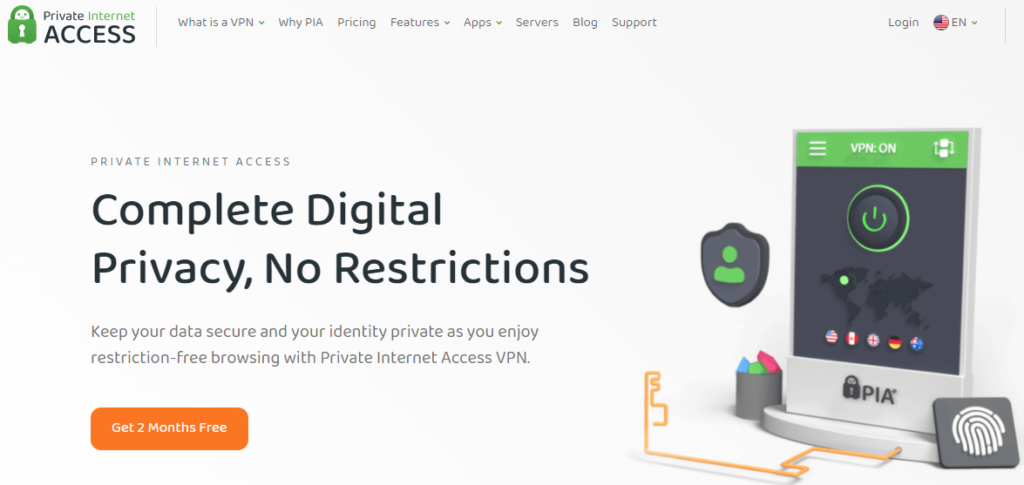 Private Internet Access is another popular VPN service provider with over 700,000 customers around the world. The company was founded in 2003 and has managed to remain one of the most reliable and secure ones ever since! It works on every device available but its best payment method is PayPal which makes it difficult to get a refund for any issues.
Private Internet Access is another popular VPN service provider with over 700,000 customers around the world. The company was founded in 2003 and has managed to remain one of the most reliable and secure ones ever since! It works on every device available but its best payment method is PayPal which makes it difficult to get a refund for any issues.
Private Internet Access has servers in over 24 countries and supports PPTP, L2TP/IPSec and OpenVPN protocols. It is also compatible with MacOS, Linux and Windows but make sure to check the tutorials for these operating systems as they are different from tutorials for Windows and MacOS.
Private Internet Access offers different encryption settings so you can customize your level of protection online. It also provides VPN routers so that you can secure every device you connect to the internet in your home or office using it (it will convert all WiFi connections into secure encrypted ones).
Private Internet Access Pros and Cons:
Private Internet Access Pros:
- PIA offers dedicated IP addresses so your online identity cannot be tracked without a VPN connection!
- It has servers in more than 30 countries which makes it one of the most popular VPNs available today!
- Private Internet Access offers a free trial plan for both its monthly and yearly plans. The free trial plan lasts for 3 days and is available to new users only.
Private Internet Access Cons:
- It does not offer a 7-day money back guarantee like most VPNs in the market today are offering so you will have to rely on the 30-day money back guarantee which is not as good as the other VPNs offer.
- Private Internet Access support is limited to email and ticket support only but it does not have live support like other VPNs do, including NordVPN (which I use).
Private Internet Access plan and pricing:
PIA has a 3-year plan which costs just $2.99/month ($0.33/month).
- 3 Years: $2.99/Month – Save 56%
- 1 Year: $2.00/Month – Save 50%
- 1 Month: $8.95/Month – Save 67%
- 6 Months: $4.49/Month – Save 65%
- 12 Months: $3.24/Month – Save 59%
PIA Compatibility: Works on PC, Mac, iOS, Android and Linux (command line) for OpenVPN connections.
Hotspot Shield:
Hotspot Shield is a popular VPN service provider with over 3,800,000 customers around the world. The company was founded in 2009 and has since managed to gain tremendous popularity around the world! It works on most devices available and can be downloaded from the company’s website or from Google PlayStore if your device is Android-based.
Hotspot Shield works on MacOS, Windows, iOS and Android devices and offers dedicated IP addresses so your online identity cannot be tracked without a VPN connection. It also supports PPTP, L2TP/IPSec and OpenVPN protocols to secure your connection while you are online!
Hotspot Shield provides you with different levels of encryption depending on what you need. You can customize your VPN connection depending on whether you want to access blocked content online or the speed you want while connected to the internet.
Hotspot Shield has servers in 21 countries around the world and can unblock any blocked content on Netflix, Hulu, Amazon Prime and BBC iPlayer! It’s also great for torrenting and is compatible with Kodi.
Hotspot Shield Pros:
- Hotspot Shield is compatible with platform like Android TV, Amazon Firestick, Chromecast Player so you can easily stream content from these devices as well!
- It is compatible with MacOS, Windows, iOS and Android devices.
- Hotspot Shield offers a free trial plan for 7 days which gives you access to its VPN servers so you can test it out before paying for the service.
Hotspot Shield Cons:
- There is no 7-day money back guarantee like most other paid VPNs are offering these days! You only get a 30-day money back guarantee!
- Hotspot Shield has read and write speeds of 50 Mbps which is lower than most paid VPNs in this list offer.
Hotspot Shield plan and pricing:
Hotspot Shield has a 3-year plan which costs just $2.99/month and that’s cheaper than most other paid plans out there!
- 3 Years: $2.99/Month – Save 58%
- 1 Year: $12.99/Month – Save 51%
- 3 Months: $8.99/Month – Save 49%
- 1 Month: $12.99/Month – Save 44%
Hotspot Shield Compatibility: Works on Windows, MacOS and iOS devices. It also supports Android and Linux (command-line) for OpenVPN connections.
Hotspot Shield Free Trial: 7 days Money-Back Guarantee
Hotspot Shield Payment Methods: Credit Card, PayPal and Bitcoin.
StrongVPN:
StrongVPN is one of the most popular VPNs in the market and is known for its reliability, speed and security! It was founded in 2006 and provides an amazing service to its customers. It works on any device that supports VPN connections but provides PPTP, L2TP/IPSec and OpenVPN protocols.
StrongVPN has servers in 22 countries around the world so it can unblock almost any content on Netflix, Hulu, BBC iPlayer and Amazon Prime! The company has 24/7 live customer support available via email so you can easily reach someone if you run into any issues with the service.
StrongVPN has dedicated IP addresses so your online identity cannot be tracked without a VPN connection (unlike many other VPN services out there). It also has servers in China and Russia which is great if you want to access blocked content online like the Great Firewall of China! It also provides a kill-switch so that your internet connection will be protected from unexpected drops!
StrongVPN Pros & Cons:
StrongVPN Pros:
- It has unlimited server switches, making it great for large families or groups of friends!
- It offers a DNS leak protection feature like most VPNs out there do but not as good as Private Internet Access (which I use).
- StrongVPN offers a 7-day money back guarantee so if you don’t like the service, you can easily get your money back!
- It has servers in 22 countries which is a great number of servers under its belt.
StrongVPN Cons:
- It does not have live chat support like NordVPN and CyberGhost, etc.
- You can purchase servers on an hourly basis but these are more expensive than dedicated IP addresses!
StrongVPN plan and pricing:
StrongVPN has a 1-year plan which costs just $6.67/month (you get 50% off because you are signing up for a year!).
- 1 Year: $3.49/Month – Save 66%
- 3 Months: $9.99/Month – Save 63% (Yearly Price)
- 1 Month: $10.00/Month – Save 55%
StrongVPN Compatibility: It works on Windows, MacOS, iOS, Android and Linux (command line) for OpenVPN connections.
PureVPN:
PureVPN is one of the most popular VPNs out there and has been providing incredible value to its customers for years! It was founded in 2006 and offers a VPN that is incredibly easy to set up and use. PureVPN has servers in 140 countries around the world and can unblock almost any content online. It offers PPTP, L2TP/IPSec and OpenVPN protocols so you can secure your connection while you browse online. PureVPN offers dedicated IP addresses so your online identity cannot be tracked without a VPN connection (unlike many other VPN services out there).
PureVPN provides you with 256-bit encryption which is incredibly strong! Its apps for Android and iOS are user-friendly as well as its desktop clients for MacOS, Windows, Linux so it’s perfect for just about anyone!
PureVPN Pros & Cons:
PureVPN Pros:
- It provides users with unlimited server switches which is great if you want to use the same account on multiple devices.
PureVPN Cons:
- There is no free trial plan like most other companies offer these days! You only get a 24-hour money back guarantee so if you do not like the service, you don’t get your money back!
- It doesn’t have live chat support but it does have an email and ticket system for getting in touch with customer support.
- There is also no 7-day money back guarantee like most other paid VPNs are offering these days! You only get a 30-day money back guarantee.
PureVPN plan and pricing:
PureVPN has a 2-year plan which costs just $2.95/month (you get 80% off the regular price because you are signing up for a 2-year plan!).
- 2 Years: $2.95/Month – Save 66%
- 1 Year: $5.75/Month – Save 58%
- 3 Months: $9.99/Month – Save 52% (Yearly Price)
PureVPN Compatibility: Works on Windows, MacOS, iOS and Android devices. It also supports Chrome, Firefox, Internet Explorer and Safari for OpenVPN connections. PureVPN has dedicated IP addresses so your online identity cannot be tracked without a VPN connection (unlike many other VPN services out there).
ProtonVPN:
ProtonVPN is another VPN that has been around for years and provides a service that is based on the ProtonMail email service! It was founded in 2013 and works great with all devices out there. It only has PPTP, L2TP/IPSec and OpenVPN protocols but still provides you with strong encryption!
ProtonVPN supports dedicated IP addresses so your online identity cannot be tracked without a VPN connection (unlike many other VPN services out there). It also has servers in 3 countries which is great if you want to get unrestricted access to the internet like China, etc. The company has 24/7 live customer support available via email so you can easily reach someone if you run into any issues with the service.
ProtonVPN Pros & Cons:
ProtonVPN Pros:
- It has a kill-switch feature that will make sure your internet connection is protected from sudden drops!
- It offers dedicated IP addresses which will not change if you need to connect different devices with the same account.
- ProtonVPN has servers in 3 countries which is great if you want to get unrestricted access to the internet like China, etc. The company has 24/7 live customer support available via email so you can easily reach someone if you run into any issues with the service.
ProtonVPN Cons:
- There is no free trial plan like most other companies offer these days! You only get 24-hour money-back guarantee so if you do not like the service, you don’t get your money back!
- It doesn’t have live chat support but it does have an email and ticket system for getting in touch with customer support.
- There is also no 7-day money-back guarantee like most other paid VPNs are offering these days! You only get a 30-day money-back guarantee.
ProtonVPN plan and pricing:
ProtonVPN has a 1-year plan which costs just $4.17/month (you get 50% off because you are signing up for a year!).
1 Year: $4.17/Month – Save 50%
ProtonVPN Compatibility: It works on Windows, MacOS, iOS, Android and Linux (command line) for OpenVPN connections.
Things You Ask Before You Buy a VPN service
Whether you are using a good VPN or a bad one, this does not matter. What matters is the protection that your VPN provider offers you. The best way to know if the VPN service you choose is protecting your data is by asking these questions:
What kind of encryption does the provider offer?
How can you remain anonymous? Choose a VPN service that offers both IP and DNS leak protection. This way, your IP address will never be revealed and neither will the location of your DNS server. When testing for leaks, visit ipleak.net and check for both IPv4 and IPv6 addresses on both UDP and TCP protocols .
What protocols are they using?
Most reliable VPN providers support OpenVPN or IKEv2, which are the most secure when it comes to transferring data. PPTP is the weakest method.
Does it log your personal information? If so, how long is it kept?
Choose a provider that does not keep logs and deletes all of them as soon as they are not needed anymore. The best way to go about this is to check for a “no logs” policy in the privacy policy section of the website. On top of that, read reviews about providers and see if there are any complaints regarding logging policies.
Does it have other features?
Some VPN providers offer additional services in addition to those used to protect your data. For example, TorGuard offers a Secure Wi-Fi feature that provides you with secure access to websites even if your internet connection is compromised. And more importantly, they also offer a Lightning-fast network speed and unlimited bandwidth which are both very convenient features. Another helpful feature they offer is a Kill Switch. This is the main reason why I chose this VPN service because it helps me maintain my anonymity by putting all of my traffic through a highly encrypted tunnel and therefore prevents leakage of my data at any time.
What countries are they located in?
Only choose providers who are located in well-known locations that respect privacy laws. Don’t fall for one of those anonymous VPN services that are all over the internet. Even though some countries may not require companies to store data, they could still be forced to release data that is kept on their servers. This is why it’s best to pick a VPN provider who keeps zero logs and is located in a country where privacy laws are respected.
Does the company have a clear privacy policy?
The more transparent the provider is, the better it usually is. For example, you’ll get extra protection when they publish a public Warrant Canary. This means that they will notify the authorities in case they receive a request for your data. They will also have to delete all of your data if they are forced to give it up.
What’s more, some VPNs will also offer their services for free. You can still use this free VPN service but do not expect them to be as secure as a paid one would be.
Frequently Asked Question
What is a VPN?
A VPN, or virtual private network, is a connection from one computer to another across the Internet. A VPN sends your data across this encrypted connection to protect you and your information from unauthorized access.
VPNs can be used to access region-restricted content, hide your identity online, and protect your Internet traffic from snooping.
Most popular uses for VPNs
#1 Access streaming video services
With a VPN, you can access Netflix, Hulu and other streaming video sites that might be blocked in your country, school or workplace. Just connect to a VPN server in the appropriate country and you’re set.
#2 Hide your IP address and location
VPNs provide an extra layer of privacy by masking your IP address, the online identifier for your computer or device. Without a masked IP address, businesses and websites can track your movements from site to site.
#3 Bypass censorship filters
Some governments block certain websites to control the flow of information and/or monitor their citizens. Schools and workplaces also use web filters to keep people from surfing inappropriate material during work hours or school days. A VPN can help you get around these filters by connecting to a server in another country.
#4 Protect yourself from hackers
When you use the Internet, your data travels across a network. Unencrypted data can be intercepted and read by anyone along this network, such as other users, your internet service provider, hackers or even law enforcement. With a VPN, your data is encrypted before it leaves your computer. ISPs and other parties on the network can’t see it — thus keeping both you and your information safe from prying eyes.
Can I Use a VPN on Any Device?
Yes. The majority of popular VPN services allow you to use their service on most any device. Apps are available for your computer, tablet, and smartphone. Some even have browser add-ons for using the VPN while surfing the web, like Hola Unblocker for Google Chrome.
Can you be tracked if you use a VPN?
On the surface, using a VPN would be safer than surfing unprotected, but that doesn’t mean you aren’t being tracked. When you use your VPN, just as when you browse the Internet without one, much of the information about your online activity and behavior is sent from your computer and recorded somewhere on the Internet by your VPN service provider.
This includes which websites you visit, what you do when you’re at those websites, how much time you spend there, and so on. The information your VPN provider collects will vary from company to company, but rest assured that your VPN is collecting a lot.
You should know exactly how your VPN provider handles data if it’s going to be effective for protecting you. (Hint: You won’t find the answer on its website.)
What makes all of this more complicated is the unknowns about who is running a VPN service and for what purpose. If they themselves are not doing anything illegal, then their business is not likely to be examined by law enforcement agencies.
How much does a VPN service cost?
The price depends on what you are looking for in a VPN service. Pricing varies greatly and it can be anywhere from free to up to $10 per day. You also have the option of using a VPN on a monthly or yearly basis.
How many different VPN services are there?
There are hundreds of different VPN providers, most offering slightly different versions of their service. Even the same company offers multiple services that perform slightly differently or offer additional functionality. The overall availability of these VPNs is growing and the ones that remain in business are adding features while also trying to compete for your business.
Can your Internet provider see your history with a VPN?
If you use a VPN service that doesn’t keep logs, then your ISP cannot see any of the websites you’ve visited with that service. They can, however, see when you have used your VPN service.
As is the case with every other online activity, there’s no way to tell what information is being collected by your VPN provider and your Internet provider when they log your usage. If they want to see what websites you have visited with the VPN service, they’ll have to ask for specific records from that company. That means it’s possible for them to monitor your activity on all websites you visit through that VPN on their own network and beyond.
Can a VPN be hacked?
These days, VPN services are more about marketing than actual privacy protection. While they may add some layer of security to your browsing, a VPN’s primary purpose is to make money by collecting and selling your data to third parties. In fact, most VPNs require you to sign up for a paid subscription in order to take full advantage of their service.
We’ve found that 98 percent of free VPNs will sell your personal data while using the service. Some may also offer a limited amount of bandwidth and others won’t allow you use their service at all until you’ve purchased something from a specific list of their affiliates or partners.
How to setup a VPN?
Setting up a VPN can vary by service. However, it’s generally as simple as downloading a software program to your computer or phone that will allow you to connect to a VPN server and protect your information.
The first thing you’ll want to get started with is downloading and installing the VPN client of your choice. Some companies have dedicated applications, while others will walk you through setting up an account on their website. The rest will have helpful information on what kinds of programs and settings are required for various platforms.
To use the VPN app, you’ll need to enter your username and password before connecting to one of the available servers.
Does a VPN Slow Down Your Internet Connection?
A good VPN service will minimize the performance impact of using the service. A bad one may slow down your connection by as much as 95 percent. That’s why it’s important to do some research before you buy a subscription to a particular VPN provider.
The first thing you should look for is how many people are currently using the overall network capacity. This will give you an idea of whether or not your connection will be blocked by everyone else currently using it, too. Typically, if there are thousands of users online, then your speeds shouldn’t be impacted at all. If there are only 100 users or less online, however, then you could see a significant slow down while using the VPN service in question.
Is a VPN safe?
While using a VPN may be safer than browsing the web without one, it doesn’t promise complete safety. If you are targeted by a dedicated cyber criminal, there’s nothing that can stop them from finding your location and your information on their own. That’s why it’s so important to use a VPN in addition to other security measures under the best circumstances.
All VPNs could potentially be vulnerable to this sort of attack, which is why many websites recommend turning on your VPN only when you need it. This is also often why many services offer browser extensions that only protect certain parts of an application, like the address bar at the top of a website or the login screen.
Is Using a VPN Legal?
Depending on where you live, using a VPN service may be illegal. Many countries around the world try to prevent citizens from accessing certain websites and services that are not supposed to be permitted. These VPN bans are usually enforced by ISPs and govies.
This means that while using a VPN isn’t illegal in most cases, it could be in yours. For example, China has recently instituted an internet firewall policy that blocks many of the most popular VPNs from accessing the country’s internet users entirely. This sort of thing is unheard of in many parts of the world where access to un-censored information is considered a fundamental right recognized by the government and protected by its courts, but other countries disagree completely.
Which Different VPN Protocols Are There?
There are now over a handful of different VPN protocols used by providers worldwide. This is something to keep in mind when selecting the best one for you, and which one features support for the network you intend on connecting through most often. The most common protocol that will be supported by a majority of VPNs is OpenVPN, but there are also other options available, including PPTP and IKEv2.
Aside from OpenVPN, there are versions of PPTP as well. The reason behind this is that these protocols still offer a functional level of encryption though they do not support all the same features as OpenVPN does.
OpenVPN
The OpenVPN protocol is the most widely used VPN protocol available on the market today. It’s an open source software, which means that it has been repeatedly tested and improved by thousands of developers all around the world. The protocol is scalable on a variety of different platforms, including mobile devices and desktop computers. It’s also highly secure, with 256-bit encryption support on both the control and data channels between you and the server you’re connecting to. This is generally considered to be very safe and secure level of encryption for many people’s needs. It also supports port forwarding, so it can be used to unlock firewalls that may be preventing you from accessing certain services.
PPTP
PPTP is an older protocol that has been mostly replaced by OpenVPN. It’s still available, however, and many providers will offer it as an option in their configurations. It’s currently not nearly as popular as OpenVPN though it can be still provided to increase security if required.
IKEv2
IKEv2 is another newer protocol that may be better than PPTP for modern needs. It supports more features than PPTP does, such as the ability to negotiate a tunnels for multiple concurrent users. It’s also a relatively new protocol that might be worth checking out if OpenVPN isn’t available for the service you’re using.
Should I Use a Free VPN Service or Buy One?
Free VPNs are the real deal, but you should only use one if you really do need it. If this is your first time using the internet and you don’t want to pay for something, then it’s probably best to get a free trial of the service and test it out. Anything that is advertised as “absolutely free” will almost definitely be absolutely free, or at least have no limitations on your usage. However, most free VPNs are ad-supported services that will push you to download apps and use their paid options at some point.
VPNs can help you unlock websites and various online restrictions that may be in place. That’s why they’re so popular among people who are interested in privacy and Internet security, too. But even then, it’s important to remember that using these sorts of services is a risk if you don’t know what they do. But if you’re already using your own resources and internet connection, it shouldn’t affect them much at all. And if all goes well (and don’t get hacked by a malicious hacker), you’ll probably have more than enough freedom and protection to do whatever you want online.
What limitations do VPNs have?
VPNs themselves are often limited in what they can do. They can conceivably unblock any website or service that doesn’t actively block them, but there’s only so much you can do to change this limitation. One of the biggest issues with VPNs is that they’re not all compatible with every single operating system and device available today. The reasons why aren’t exactly clear. It could be that the developers want people to pay for their services, or it could just be that they want to ensure interoperability with as many devices as possible so that people have more freedom when using them.
Should VPN be always on?
This is a common question asked by many internet users who want to stay protected and keep their data safe. VPNs help us access websites that would otherwise be blocked to us, such as social media or streaming services. In addition, VPNs can help protect our personal information from being monitored or stolen by hackers who may be lurking in the shadows of the web. A VPN can also be helpful in keeping our privacy while using public WiFi hotspots and on public computers. It’s always good to remember that this is a tool and not the only way to protect ourselves online.
Basically, a VPN service will secure your internet traffic, allowing you to browse the internet privately and anonymously by masking your IP address. This makes it seem like you are browsing from another country or location when in reality you can still access websites normally. When in reality, a VPN is just something that helps users maintain their online privacy by encrypting their data. The data is then sent through an encrypted tunnel and therefore cannot be monitored by government agencies or hackers.
So in most circumstances, you should keep your VPN on when surfing the internet.

